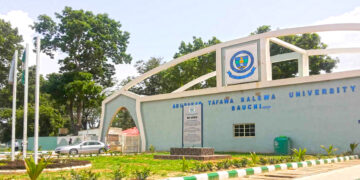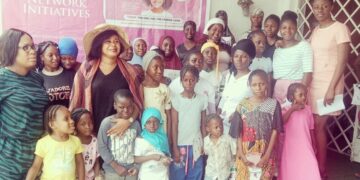Civil Society Organisations have called for a unified and stronger domestic funding framework to fight HIV/AIDS, tuberculosis (TB), and malaria as funding from external sources dwindles.
The groups made the call at the „Harmonisation of Civil Society Strategies for Domestic Resource Mobilisation (DRM) for HIV/AIDS, TB, and Malaria“ workshop organised to harmonise civil society efforts across the three major disease programmes, aiming to create a single, practical domestic funding framework
The Stop TB Partnership Nigeria Board chair, Queen Ogbuji-Ladipo, emphasised the urgent need for a collective approach. “In the face of this dwindling funding from external sources, we need to come together and form a unified front to source more domestic support in-country,” she said.
She added that CSOs are crucial in pushing for government and private sector involvement. “They are the voice for the voiceless,” she noted.
Ogbuji-Ladipo further stressed the need for results-driven documentation. “We don’t want to develop another framework that will just sit on the shelf. This must be a tool for change and action,” she urged all stakeholders to stay committed beyond the workshop.
Also speaking, the national coordinator of the Association of Civil Society Organisations on Malaria Control, Immunisation and Nutrition (ACOMIN), Ayo Ipinmoye, highlighted the importance of collaboration “Rather than working piecemeal, we must harmonise our strategies and scale up resource mobilisation across all local governments,” he said.
Ipinmoye also spoke about the current funding challenges, noting that “Malaria needs over $2 billion yearly, yet we face a deficit of over $1 billion.”
He also called on community members to play their part. “When people misuse donated mosquito nets for fishing or other purposes, they sabotage progress. Communities must be held accountable, too,” he warned.
Speaking on private sector involvement, Ipinmoye said many large companies continue to profit from communities while doing little to support public health. “We have big companies in telecommunications, social media, and other sectors making billions, yet their input into the health of the people they profit from is minimal,” he said.
“It is time they step up and take health seriously as part of their corporate social responsibility,“ he added, calling for deliberate engagement with the private sector to support the fight against HIV, TB, and malaria.
“Government cannot do this alone. The private sector must invest in the people who sustain their businesses. Their support can help close funding gaps and improve access to life-saving interventions,” Ipinmoye added.
For his part, Tajudeen Ibrahim, executive secretary of the Country Coordinating Mechanism (CCM), Nigeria for the global fund, stressed the need to reduce Nigeria’s reliance on foreign grants.
“For too long, donor fatigue and shifting priorities abroad have made health financing unpredictable,” he said. Ibrahim added that domestic resources will bring more efficiency and accountability.
He also confirmed that each disease area has a fully costed strategic plan to guide investment. “As we progress in this meeting, every program will present what is needed, what has been received, and what is still lacking. That’s how we’ll bridge the gaps,” he explained.





